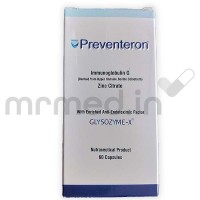Perinorm Injection 5*2ml contains the active component Metoclopramide. It is commonly used to treat gastrointestinal disorders. It works by increasing muscle contractions in the upper digestive tract, which helps speed up food movement and reduce nausea and vomiting. This benefit is particularly relevant for individuals with gastroparesis, a condition characterized by delayed stomach emptying. This medication is primarily eliminated from the body through the kidneys. In individuals with severe renal impairment, dosage adjustments are. Abrupt discontinuation of Perinorm Injection 5*2ml after prolonged use may lead to withdrawal symptoms such as nausea, vomiting, anxiety, and agitation. Consult your healthcare provider for guidance on tapering the medication if necessary.
If a person has a known hypersensitivity or allergy to Perinorm Injection 5*2ml or any of its ingredients, its use should be avoided. It should not be used if there is a known or suspected blockage or perforation in the gastrointestinal tract. The medication could potentially worsen the condition or lead to complications. It should generally be avoided in individuals with Parkinson's disease unless a healthcare professional carefully evaluates the potential benefits.
Therapeutic Effects of Perinorm Injection 5x2ml
Pregnancy
Perinorm Injection 5*2ml is generally considered safe during pregnancy when taken within the recommended dosage. However, it is always important to consult a healthcare professional before starting new supplements during pregnancy.
Breast Feeding
Perinorm Injection 5*2ml is generally considered safe when breastfeeding within the recommended dosage. However, it is always important to consult with a healthcare professional before starting any new supplements during breastfeeding.
Lungs
If you have pre-existing lung conditions or respiratory issues, it's important to inform your healthcare provider before taking Perinorm Injection 5*2ml.
Liver
Perinorm Injection 5*2ml is generally used cautiously in individuals with liver impairment or liver disease. The medication is metabolized in the liver, and impaired liver function can affect the metabolism and clearance of this medication from the body.
Alcohol
Combining Perinorm Injection 5*2ml with alcohol is generally not recommended. Alcohol can increase the sedative effects of this medication and may enhance certain side effects, such as drowsiness, dizziness, and impaired coordination.
Driving
Perinorm Injection 5*2ml can cause side effects that may impair your ability to drive or operate machinery safely. Common side effects are drowsiness, dizziness, and vision changes. These effects can affect your coordination, reaction time, and judgment, making driving unsafe or performing tasks requiring alertness.
Serious:
- Allergic reactions such as rash, itching, or swelling of the face, tongue, or throat
- Severe dizziness or lightheadedness
- Involuntary muscle contractions
- Parkinson's disease (tremors, stiffness, and slow movements)
- Altered mental status
- Seizures
Common:
- Drowsiness
- Fatigue
- Restlessness
- Dizziness
- Headache
- Nausea
- Diarrhea
- Abdominal pain or discomfort
- Changes in vision
- Insomnia (difficulty sleeping)
Perinorm Injection 5*2ml is primarily indicated for gastrointestinal conditions such as nausea, vomiting, and gastric emptying disorders. However, in some cases, it may be prescribed off-label for other purposes, such as managing migraines or stimulating lactation. A healthcare professional should determine the off-label use of this medication based on individual circumstances.
Perinorm Injection 5*2ml is not considered an addictive medication. It does not have the same potential for dependence or abuse as drugs in certain other classes, such as opioids or benzodiazepines. However, it is important to follow the prescribed dosage and duration of treatment as directed by your healthcare provider.
Perinorm Injection 5*2ml is not typically used as a primary treatment for motion sickness. There are other medications specifically designed for motion sickness, such as antihistamines. However, in some cases, healthcare providers may prescribe it off-label for this purpose. It is best to consult with your healthcare provider for personalized advice on managing motion sickness.
Perinorm Injection 5*2ml can be used in older adults; however, they may be more susceptible to certain side effects, such as extrapyramidal symptoms and sedation. Lower doses or dosage adjustments may be required in this population. Close monitoring is important to ensure safety and minimize potential adverse effects.
There are no specific dietary restrictions associated with Perinorm Injection 5*2ml. However, following a balanced and healthy diet while taking any medication is generally recommended. If you have specific concerns or dietary restrictions, it's best to consult with a healthcare provider or a registered dietitian for personalized advice.
Perinorm Injection 5*2ml may cause common side effects such as drowsiness, restlessness, and fatigue. These effects can vary in intensity and impact each individual differently. It's important to be aware of these potential side effects and consult your healthcare provider if they become bothersome or persist.
Molecule name: Metoclopramide | Therapeutic class: Gastrointestinal Motility Agent |
Pharmacological class: Dopamine receptor antagonists
| Indications: 1. Gastroparesis 2. Nausea and vomiting 3. Gastroesophageal reflux disease (Acid reflux and heartburn) |







-200x200.jpg)